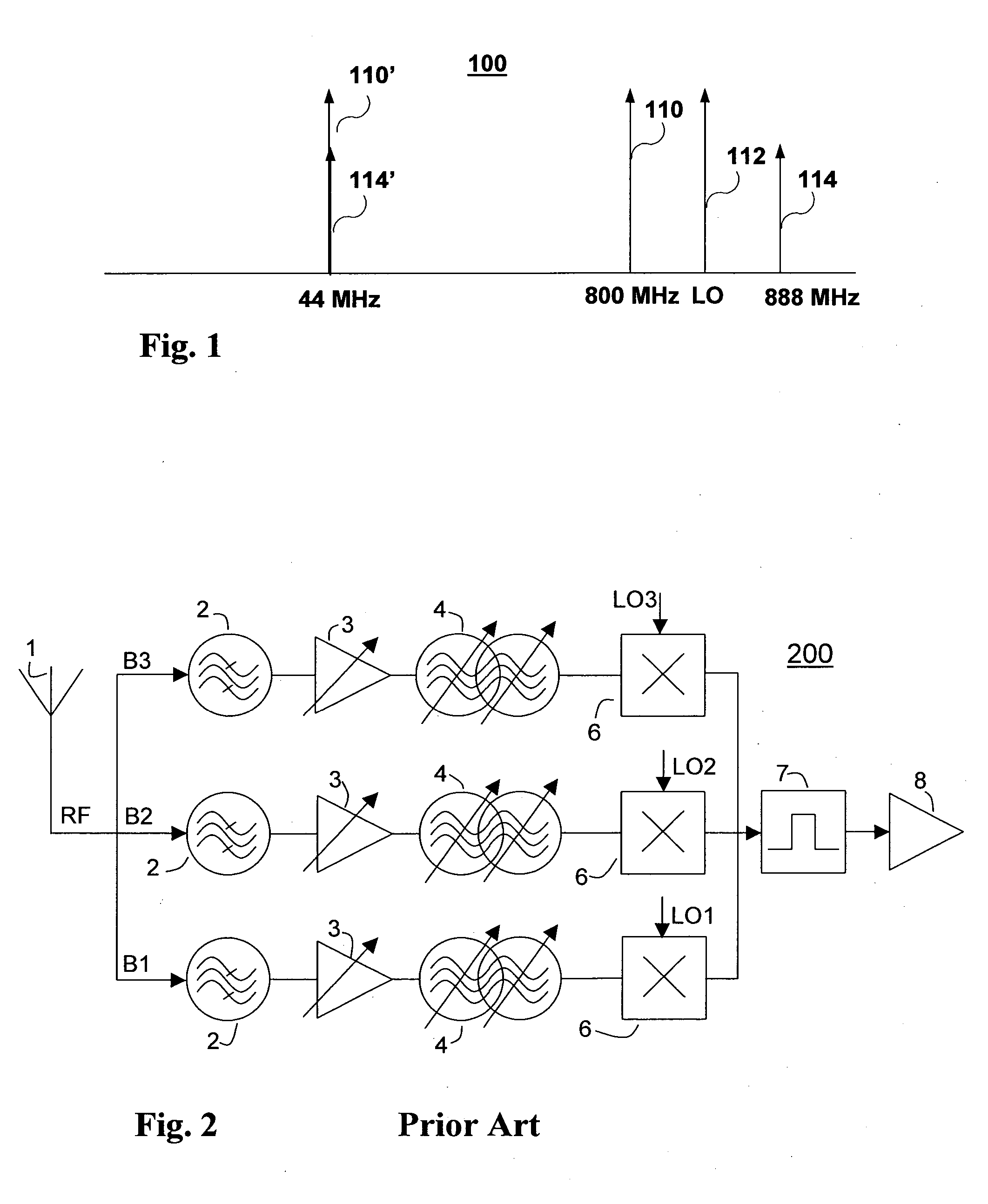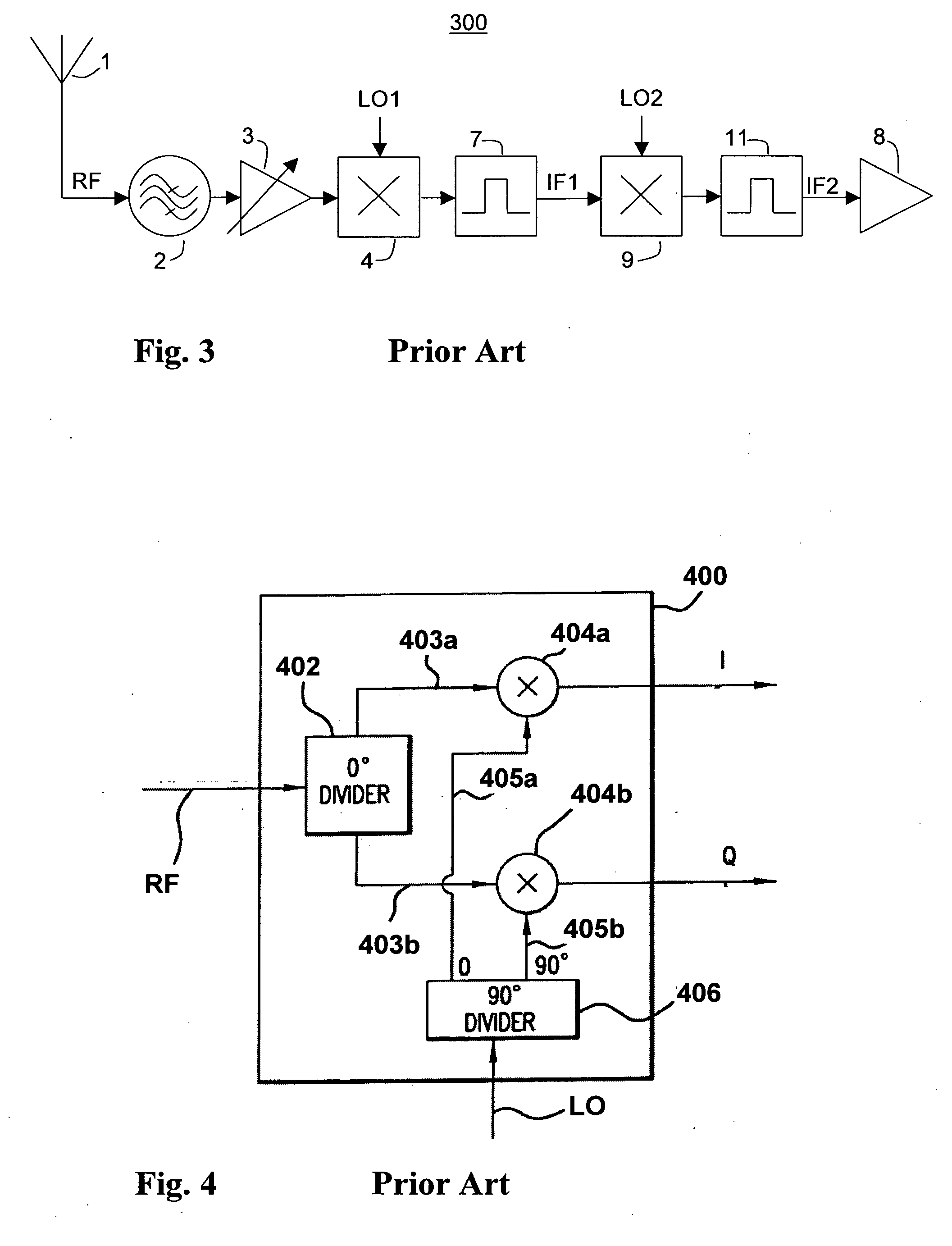Single conversion tuner
a single-conversion, tuner technology, applied in the field of single-conversion tuners, can solve the problems of deteriorating image rejection, single-tuned tuneable filters typically do not exhibit sufficient flatness in the pass band, and deteriorating actual image rejection at this frequency, so as to achieve good input sensitivity and image rejection properties, linearity, and high pass band flatness.
- Summary
- Abstract
- Description
- Claims
- Application Information
AI Technical Summary
Benefits of technology
Problems solved by technology
Method used
Image
Examples
Embodiment Construction
[0036] In FIG. 7 a tuner 700 using an image reject mixer according to an aspect of the invention is presented. In the tuner 700 a radio frequency signal RF is received via an antenna 1. The signal RF received by antenna 1 is coupled to a band select filter 2. From the band select filter 2 the signal is passed-on via a variable gain amplifier 3 to a double-tuned tuneable filter 4. From the double-tuned tuneable filter 4, the signal is coupled to an image reject mixer 400. The image reject mixer 400 is driven by a variable local oscillator signal LO1 and down converts the RF signal to an intermediate frequency signal IF1. The intermediate frequency signal IF1 is further fed to an SAW filter 7 for channel separation. An amplifier 8 receives the filtered signal IF1 and buffers it for further processing.
[0037] The advantages which result from the inventive tuner circuit 700 will now be described with reference to FIGS. 8 to 10.
[0038] In FIG. 8 the attenuation versus frequency for a dou...
PUM
 Login to View More
Login to View More Abstract
Description
Claims
Application Information
 Login to View More
Login to View More - R&D
- Intellectual Property
- Life Sciences
- Materials
- Tech Scout
- Unparalleled Data Quality
- Higher Quality Content
- 60% Fewer Hallucinations
Browse by: Latest US Patents, China's latest patents, Technical Efficacy Thesaurus, Application Domain, Technology Topic, Popular Technical Reports.
© 2025 PatSnap. All rights reserved.Legal|Privacy policy|Modern Slavery Act Transparency Statement|Sitemap|About US| Contact US: help@patsnap.com



